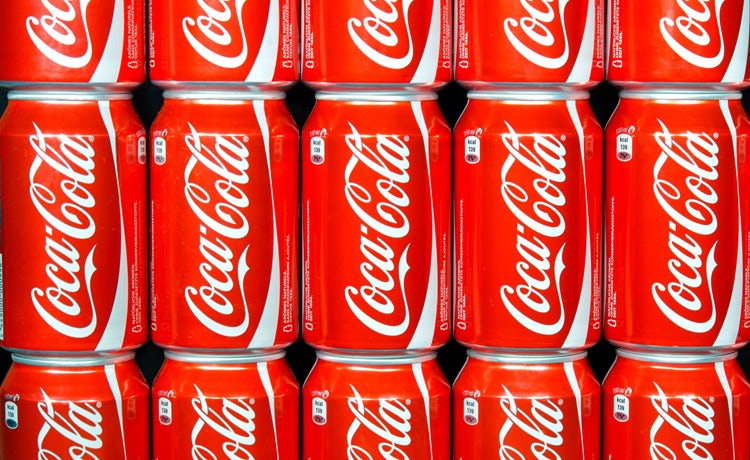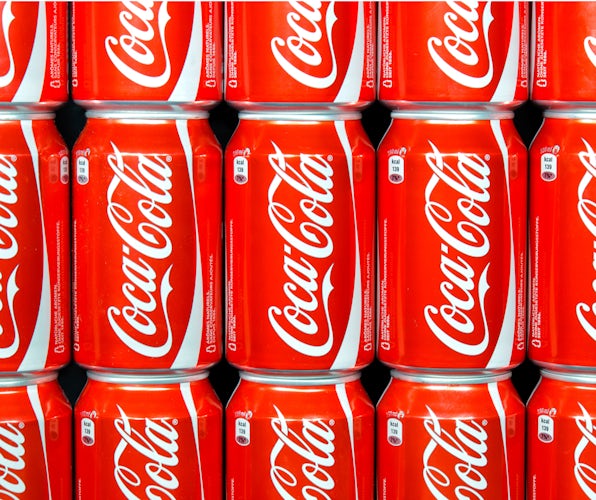Coca-Cola and the rise of the chief growth officer
Coca-Cola has become the latest FMCG brand to appoint a chief growth officer as it looks to tech, innovation and sustainability as the keys for future success.

Coca-Cola is in the midst of a transformation. No longer can it rely on consumers simply buying more and more if its fizzy drinks as concerns around obesity and sugar continue to grow.
Instead it needs to look to innovation, technology and sustainability to grow its business.
Amid that backdrop, it has decided to get rid of the chief marketing officer role and replace it with a chief growth officer. It is a sign of a transformation at the brand as it moves from being a classic beverage company to a tech company.
For those that missed the move, Coke’s global CMO Marcos de Quinto is retiring after a 35-year career with the company. But rather than replace him, Coca-Cola is merging marketing with its customer and commercial teams to create a new ‘chief growth officer’ (CGO) role, held by Francisco Crespo.
That is part of wider shake-up at the top, with the chief innovation officer now reporting directly into the CEO and the creation of a chief public affairs, communications and sustainability officer. According to Coca-Cola, the restructure will spearhead its transformation into a “growth-oriented and consumer-centered” beverage company.
The rise of the chief growth officer
Coca-Cola is far from the only brand to hire a CGO. Consumer goods giants including Colgate-Palmolive, Coty and Mondelēz have all hired CGOs to “accelerate growth efforts” or to “bring focus and growth to our platforms”.
According to research by executive search consultants Russell Reynolds, these are “first-generation” CGOs. FMCG companies began to appoint CGOs around five years ago, with Coca-Cola simply the latest to do so.
Most CGOs have a number of things in common. Russell Reynolds says 86% have “grown up in” FMCG, 57% were appointed internally and 71% have worked with their current company for at least seven years. All these are true at Coca-Cola.
The reasons for the rise are varied, but Russell Reynolds puts it down to the fact that “easy growth” at FMCG is now a thing of the past.
“Companies no longer can rely on traditional methods of incremental expansion and innovation—be it a new category, market, acquisition or distribution channel,” says report author Jim Hinds.
“Growth depends on a longer term vision and enterprise-wide execution of strategy. This requires that organisational complexity is not merely minimised but is managed in a comprehensive manner, often challenging the prevailing way of doing things and altering corporate culture.”
Why Coca-Cola needs a CGO
This certainly applies for Coca-Cola. It has seen global sales slide, with revenues falling from $48bn (£38.3bn) in 2012 to $44.3bn (£35.3bn) last year.
In the UK meanwhile, figures from Nielsen show that total UK value sales of ‘classic’ Coke were down 4.8% to £496.4m for the year ending 19 November 2016. Diet Coke and Coke Life saw sales fall by 3.1% and 57.4% respectively. Only Coca-Cola Zero Sugar grew, with sales up 13% following a rebrand a £10m marketing push.
For generations, Coke has been recognised as an epic marketer. But now, you have to rely on more than commercials and marketing tactics to grow.
Michael Koziol, Huge
In this context, the executive shake-up makes sense as it details a clear vision and strategy for the company going forward.
“When I look at what Coca-Cola is talking about in terms of its new executive team, it looks like more of a tech company than a classical beverage company,” says Michael Koziol, international president at global brand experience agency Huge.
“For generations, Coke has been recognised as an epic marketer. But in today’s environment, you have to rely on more than commercials and marketing tactics to grow. The appointment of a chief growth officer is one part, but also bringing tech, sustainability, talent, and research and development right under the CEO signals to me that they get it, and that they’re organising more for transformation rather than continued marketing excellence.”
Koziol believes the reshuffle sends a clear message to the business, investors and competitors about its ambitions for the future and its dedication to turn flagging sales around.
Trouble on the horizon for CMOs?
But marketing leadership expert Thomas Barta believes there is a more troubling truth to the matter, which is that marketers are simply not seen as growth drivers. Pointing to the research by search firm Russell Reynolds, he says CGOs aren’t just enhanced CMOs. They are growth-focused brand builders, trusted CEO advisers, and internal connectors who align conflicting agendas.
READ MORE: If CMOs don’t stand for growth, they stand for nothing
“Hold on—let’s think about this. What, if not growth, is a CMO’s focus? How, if not by being the trusted CEO advisor and spanning silos, could any CMO make the right things happen for customers inside a company? What the report describes is simply what you would expect every proper CMO to be,” he says.
Separate research by Accenture Strategy bears that out. Half (50%) of CEOs see CMOs as the primary driver of disruptive growth and 37% would put their marketing chiefs first in the firing line if that is not achieved.
From the CMO side, 75% think they have a “great deal of control” over the disruptive growth in their company. And yet those same CMOs spend just 37% of their time on innovation and just 30% see themselves as cutting-edge marketing innovators.
READ MORE: CMOs blamed first when companies miss growth goals
There is clearly a disconnect. And YouGov BrandIndex figures give a hint as to the issues at Coca-Cola.
Perceptions of the brand are on the up. Its Index score (which measures a range of metrics including quality, value, reputation and recommendation) increased by 4.7 points over the past year, a “statistically significant” rise. It is now ranked eighth out of a list of 26 carbonated drinks brands, ahead of Diet Coke (9th), Coke Zero (12th) and Coke Life (17th).
Consumer consideration for Coca-Cola has also seen a statistically significant increase, placing it second in the rankings. Diet Coke is still placed first, and Coke Zero has climbed the rankings from eight to sixth.
These figures should not be a surprise given the brand’s significant investment in marketing over the past year, with the move to the ‘One Brand’ strategy, launch of its ‘Taste the Feeling’ campaign and its £10m relaunch of Coca-Cola Zero Sugar.
However, what this is yet to deliver is a sales uplift. And Barta says the restructure suggests Coca-Cola is now looking beyond marketing to drive growth.
“It appears [new CEO James] Quincy just doesn’t trust the company’s marketers to drive growth. Marketing will lose the boardroom seat, reporting to the new CGO,” he says.
“As long as marketers continue to position themselves as experts in advertising, brand positioning, millennials and the latest digital fads – instead of being growth drivers – we’ll see more CMO positions disappear.”
But Koziol believes the team restructuring will be good for marketers in the long-run, as it will require them to become more data-centric, performance-orientated and “to bring more transformational ideas to the table rather instead of ideas that fit a template that was successful in the past”.
He concludes: “When you have a new team under a new mandate that is focused on growth, I expect they will be doing a hard rethink on everything that they’ve done in the past and plan to do in the future – and that is exciting.”
Insight is one of the categories at Marketing Week’s Masters of Marketing awards, taking place in October. For more information on the awards including a full category list and how to enter, visit www.festivalofmarketing.com/awards






